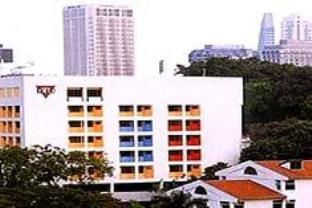Residential property prices in Singapore has been in a bull run since 2009 and it seems nothing can bring down the prices which are fuelled by bubble generating printed money as well as a supply shortage inherited from the previous decade. But today, UBS released a new report which predicts a 10 to 15 percent fall in the Singapore property prices in the next 1 year. Although this prediction is less pessimistic than the 30 per cent price fall predictions of December 2011, it is still pessimistic compared to many reports which predict marginal price changes in the same period.
Current prices are supported by low interest rates, which temporarily make 1 million dollar condominium units “affordable” and a property undersupply of the period between 2000 and 2010. Although the new property releases both in public and private property sectors has significantly increased in the past few years, most of these units are not completed yet.
But there are dark clouds on the horizon which can, in the worst case scenario, make this prediction an optimistic one. The most important one is the Eurozone crisis. Although European leaders display a stellar performance on kicking the can down the road for many years, inevitable end to
the ridiculous European
Debt Crisis solution cycle may come soon. And this end, is the main risk facing Singapore's economy and financial system now, MAS said today, warning Singapore to brace for "a more adverse turn of events":
Ravi Menon, managing director of the Monetary Authority of Singapore, said any sharp deterioration in the eurozone, the city-state's biggest export market, could hurt economic growth and lead to a drying up of bank credit.
"The key risk facing the Singapore economy and financial system is the ongoing crisis in the eurozone," Menon said at a news conference."While eurozone governments have taken important steps to deal with the crisis, we must be prepared for a more adverse turn of events."
Turmoil in the eurozone continued to cast a shadow across global financial markets Wednesday after Spanish borrowing prices hit a new historic high amid fears that Madrid will soon need a full-blown bailout.
Singapore could see a drying up of bank credit similar to the aftermath of the collapse of US bank Lehman Brothers in 2008 that hammered global markets, Menon said.
Source :
Eurozone crisis is main risk for Singapore: central bank
Currently supply of homes is still tight and although UBS acknowledges this, they expect a huge supply hitting the market from next year onwards. And according to UBS, this oversupply will not be fully absorbed by backlog of demand:
“UBS expects 140,000 to 150,000 homes to be completed from this year to 2015, higher than its estimated cumulative supply shortfall of 90,000 units built from 2000 to 2011.”
Source :
Singapore home prices may fall 10%-15%: UBS
These with the estimated slowdown in the population growth thanks to tighter immigration policies turned UBS sour on the Singapore property market’s prospects, leading to 10-15% correction in the prices.
Another problem is the growth rate of the Singapore’s economy. After inflating in 2010 and in 2011 with cheap credit flow from China and West, Singapore growth may fall below 1% this year:
Singapore's growth may fall below 1 percent should the U.S. and Chinese economies slump and the European crisis worsen significantly, the central bank said as it bolstered reserves to counter market turmoil.
The island's current gross domestic product growth forecast of 1 percent to 3 percent is based on assumptions that there is no recession in the U.S., no significant escalation of the euro zone crisis and no hard landing in China, Monetary Authority of Singapore Managing Director Ravi Menon said today.
"If one or more of these assumptions do not pan out, Singapore's GDP growth could dip below 1 percent this year," Menon said in a briefing in the city state as the central bank released its annual report. "Growth momentum is clearly slowing."
Source : Singapore Says Growth May Fall Below 1%; MAS Boosts Reserves
But there is a probability holding the markets from falling more: USA can response to all these economic turmoil by a third round of financial suicide, called Quantitative Easing III (QE3), and China may follow it by another round of huge destruction of its 2 decades old savings and pump printed money to inflate Singapore property more.
But some are more optimistic than UBS. “My opinion is UBS is so macro and they don’t have a strong feel of the market. A 10 to 15 per cent drop is a huge correction. We have not seen such things happening despite the cooling measures introduced in December last year,” said Mohamed Ismail Gafoor, CEO of PropNex Realty.[1]
[1] -
Singapore home prices may fall 10%-15%: UBS
























